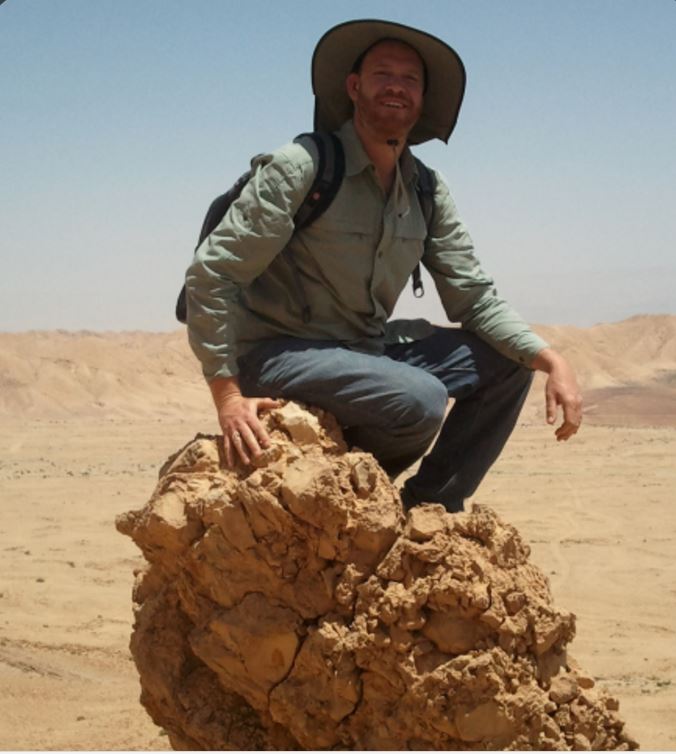
Dr. Aaron Melijson
Email: ameilijs@campus.haifa.ac.il
Research interests: Geobiology, sedimentology, stratigraphy, paleoclimates, petroleum systems
I have been implementing sedimentological, stratigraphic and geo-biological toolsets into the study of diverse geological systems, spanning the Triassic to Upper Miocene, to try and understand paleoclimates and their influence on the biosphere. I am specifically interested in the interrelationship between productivity, bottom water environments and organic matter quality, quantity, preservation and source. My work has shown that the biochemical reciprocity of present and deep-time marine systems is found to be extremely complex and dynamic. Moreover, my work on Paleozoic, Mesozoic, and Cenozoic deposits has shown that sustained life, one of the key factors in depositional reconstructions, is found to be very resilient by using remarkable adaptations to cope with, and even thrive in, stressed and extreme environments. I classify myself as a field and core-analysis geologist, and my dogma is that a multi-proxy approach is essential in the fields of sedimentology, basin analysis and paleoceanographic reconstructions, particularly when studying ‘abnormal’ organic-rich or hypersaline environments.
My last post-doctoral position was at the Organic and Isotopic Geochemistry Laboratory headed by Prof Julio Sepúlveda in the INSTAAR institute at CU Boulder, USA. There I have focused on the extraction and analysis of organic-matter preserved within an Upper Miocene (MSA) deep-sea section from the Levant Basin, an onshore organic-rich Eocene section from the same region, Cretaceous to Miocene sediments from the Eratosthenes Seamount, and Lower Cretaceous deposits from northern Israel. Today I consult the oil industry with hydrocarbon exploration, and I have also worked as an independent consultant and as an employee in a geological consulting agency, working and managing geological projects at different localities across the globe. I have been implementing sedimentological, stratigraphic and geo-biological toolsets into the study of diverse geological systems, spanning the Triassic to Upper Miocene, to try and understand paleoclimates and their influence on the biosphere. I am specifically interested in the interrelationship between productivity, bottom water environments and organic matter quality, quantity, preservation and source. My work has shown that the biochemical reciprocity of present and deep-time marine systems is found to be extremely complex and dynamic. Moreover, my work on Paleozoic, Mesozoic, and Cenozoic deposits has shown that sustained life, one of the key factors in depositional reconstructions, is found to be very resilient by using remarkable adaptations to cope with, and even thrive in, stressed and extreme environments. I classify myself as a field and core-analysis geologist, and my dogma is that a multi-proxy approach is essential in the fields of sedimentology, basin analysis and paleoceanographic reconstructions, particularly when studying ‘abnormal’ organic-rich or hypersaline environments.
My last post-doctoral position was at the Organic and Isotopic Geochemistry Laboratory headed by Prof Julio Sepúlveda in the INSTAAR institute at CU Boulder, USA. There I have focused on the extraction and analysis of organic-matter preserved within an Upper Miocene (MSA) deep-sea section from the Levant Basin, an onshore organic-rich Eocene section from the same region, Cretaceous to Miocene sediments from the Eratosthenes Seamount, and Lower Cretaceous deposits from northern Israel. Today I consult the oil industry with hydrocarbon exploration, and I have also worked as an independent consultant and as an employee in a geological consulting agency, working and managing geological projects at different localities across the globe.




